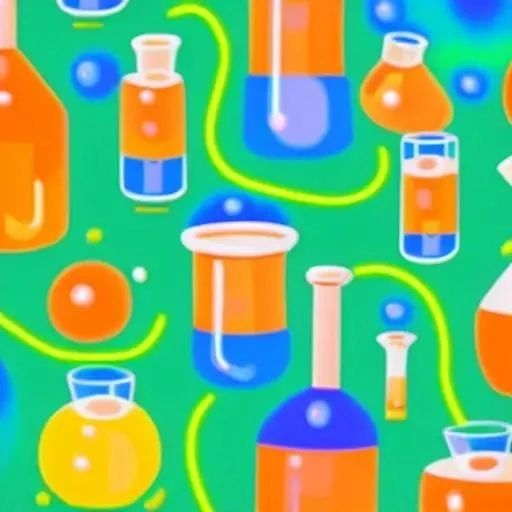
For years, whispers of a challenging job market have occasionally shadowed the distinguished halls of chemical engineering departments. Graduates, once accustomed to immediate, high-paying placements, have sometimes found themselves navigating a more complex landscape than their predecessors. Indeed, while some might recall a golden era where nearly every ChemE graduate from a top school secured a solid job or pursued advanced studies with ease, today’s market, though undeniably evolved, is far from diminished. It demands a new kind of strategic agility, transforming what might appear as hurdles into remarkable opportunities for those poised to innovate.
Today, as we stand in October 2025, the narrative is shifting dramatically. Far from being a niche struggle, the chemical engineering career outlook is experiencing a profound resurgence, powered by burgeoning demands in sectors ranging from advanced pharmaceuticals to sustainable energy. Official projections from the U.S. Bureau of Labor Statistics paint an incredibly optimistic picture, forecasting employment growth significantly faster than the average for all occupations. This vibrant expansion isn’t merely about more jobs; it’s about an unparalleled diversity of roles and an astonishing earning potential, with exceptional engineers potentially commanding upwards of $200,000 annually after just a couple of years, and even half a million dollars later in their careers.
| Category | Information | Reference Link |
|---|---|---|
| Projected Job Growth (2023-2033) | 10% (Much faster than average for all occupations) | U.S. Bureau of Labor Statistics |
| Median Annual Wage (2024 Estimates) | $112,100 — $142,810 (Highly experienced can earn significantly more) | |
| Key Industries for Employment | Chemical Manufacturing, Pharmaceutical & Medicine Manufacturing, Scientific Research & Development Services, Engineering Services, Food & Beverage Production, Environmental Management, Energy Sector (Traditional & Renewable) | |
| Common Job Titles Beyond “Chemical Engineer” | Process Engineer, Production Engineer, Operational Engineer, Plant Engineer, Metallurgist, Energy Engineer, Environmental Engineer, Manufacturing Engineer, Quality Manager, Analytical Chemist |
Navigating the Modern Chemical Engineering Landscape
The contemporary chemical engineering landscape is incredibly dynamic, demanding a blend of traditional expertise and forward-thinking adaptability. While the oil and gas sector has faced its share of volatility, particularly post-COVID, innovative chemical engineers are finding their skills are more critical than ever in emerging fields. This includes roles in biotechnologies, developing novel drug delivery systems; in renewable energy, pioneering efficient biofuel production and advanced battery materials; and in sustainable manufacturing, designing circular economy processes that minimize waste and maximize resource utilization. The perceived “niche market” of yesteryear has broadened into an expansive ecosystem of opportunity, necessitating a fresh perspective on career planning.
One of the most profound shifts is the diversification of roles. Gone are the days when a chemical engineer’s path was narrowly defined. Today, the core principles of mass and energy transfer, thermodynamics, and kinetics are being applied in remarkably varied contexts. By integrating insights from AI and data analytics, chemical engineers are now optimizing complex industrial processes, designing smart materials, and even developing personalized medicine. This evolution means that the job titles themselves are often less conventional; aspiring professionals should cast a wide net, searching for positions like Process Automation Engineer (a field currently experiencing a significant shortage of experienced professionals), Environmental Engineer, or even Quality Manager, where their unique problem-solving capabilities are highly valued.
Mastering Your Ascent: Strategies for Success
In this flourishing but competitive environment, a proactive approach to career development is absolutely paramount. Simply possessing a degree, even from a prestigious institution, is no longer the sole determinant of success. Employers are actively seeking candidates who demonstrate continuous learning and a strategic mindset. For instance, acquiring marketable software skills like Visual Basic for Excel or proficiency in AutoCAD can dramatically enhance a candidate’s appeal, showcasing a practical aptitude beyond theoretical knowledge. These are the ancillary skills that transform a good resume into an outstanding one, signaling a readiness to contribute immediately.
Furthermore, the art of the job interview has evolved into a strategic conversation. Beyond merely outlining qualifications, candidates must articulate a compelling “Why this job?” narrative. This involves deeply researching the company and role, then thoughtfully connecting one’s aspirations and unique value proposition to the specific needs of the position. Recruiters, having heard countless generic pitches, are genuinely impressed by candidates who demonstrate genuine enthusiasm and a clear understanding of how their skills align with the organization’s mission. It’s about selling your future passion, not just your past accomplishments.
Building Resilience and Explaining Your Journey
Life, and careers, rarely follow a perfectly linear trajectory. Gaps in employment, whether due to market fluctuations or personal choices, are becoming increasingly common; However, how these periods are framed can make all the difference. Instead of simply stating “just looking for jobs,” proactive engineers are using this time to cultivate new skills, volunteer, or even engage in tutoring, thereby staying sharp on fundamental concepts like introductory chemistry or calculus. This not only keeps the mind agile but also provides a credible, positive narrative about sustained intellectual engagement, showcasing resilience and a commitment to professional growth.
The future for chemical engineers is incredibly bright, characterized by innovation, adaptability, and boundless potential. While the path may require more deliberate navigation than in past decades, the rewards for those who embrace continuous learning and strategic thinking are immense. From pioneering sustainable solutions to developing life-saving pharmaceuticals, chemical engineers are uniquely positioned at the forefront of global progress. The market isn’t just open; it’s actively seeking the next generation of problem-solvers. By honing diverse skills, crafting persuasive narratives, and maintaining an optimistic, forward-looking mindset, today’s chemical engineering graduates are not just finding jobs—they are shaping the future.
